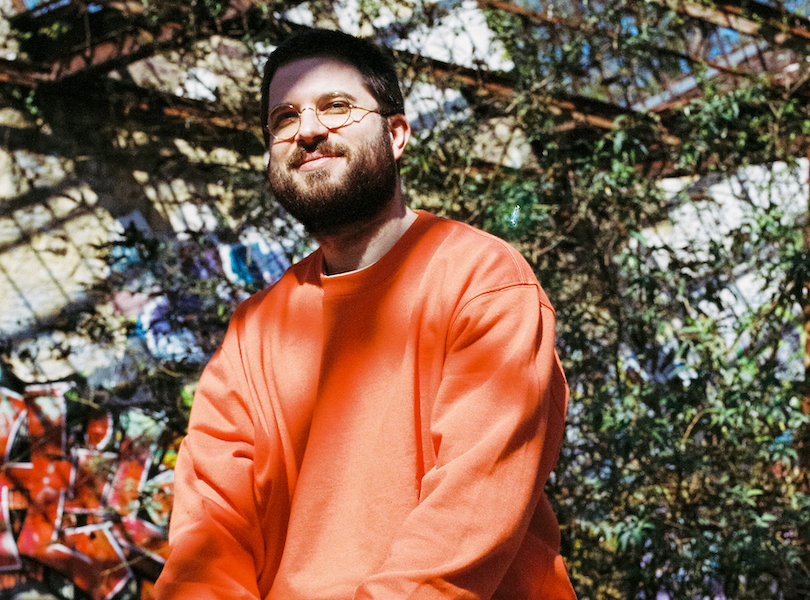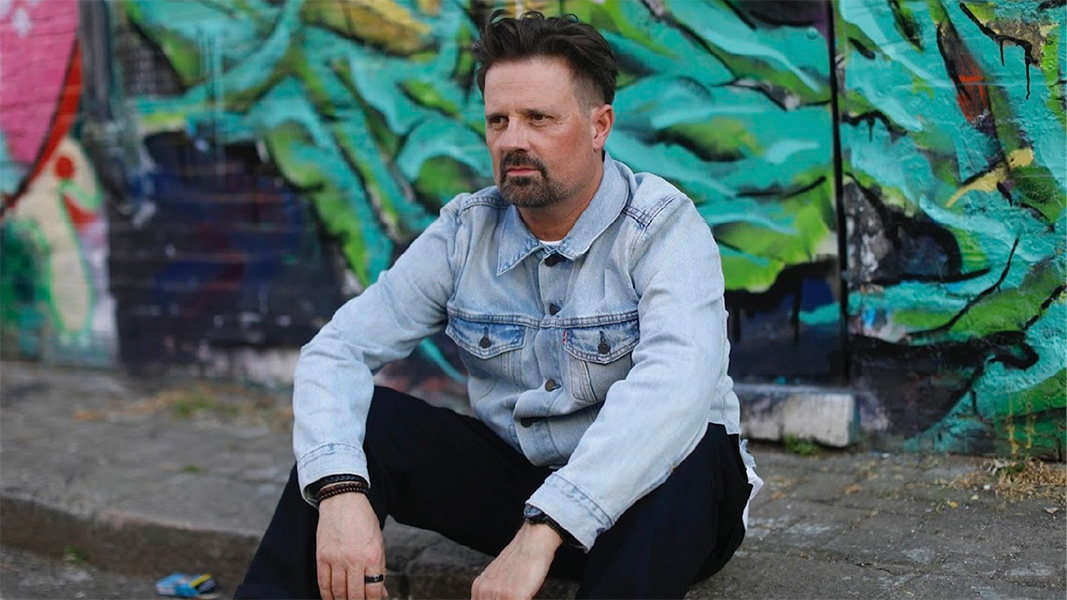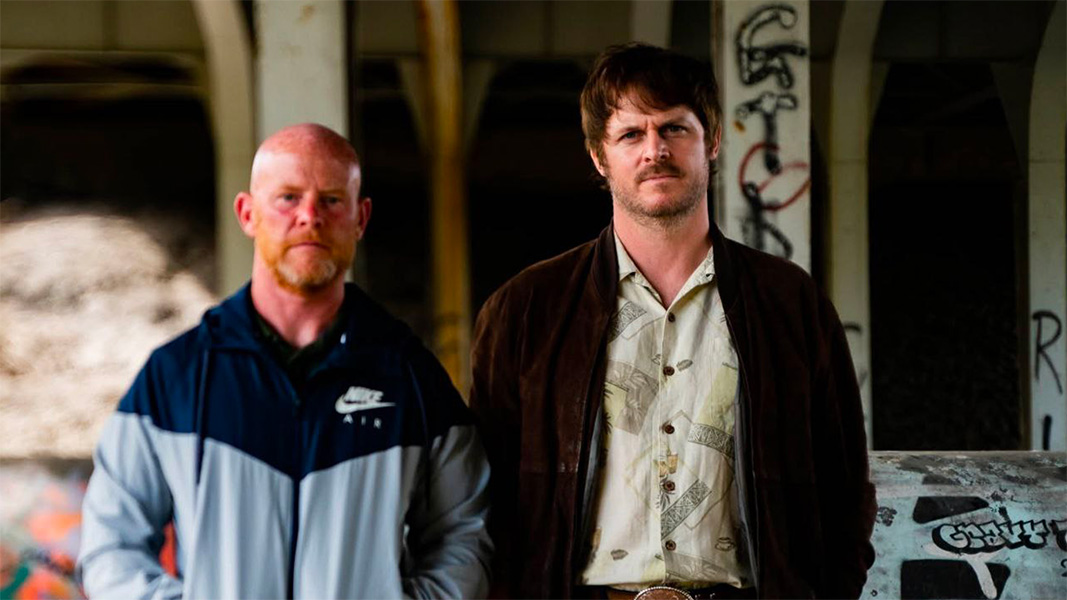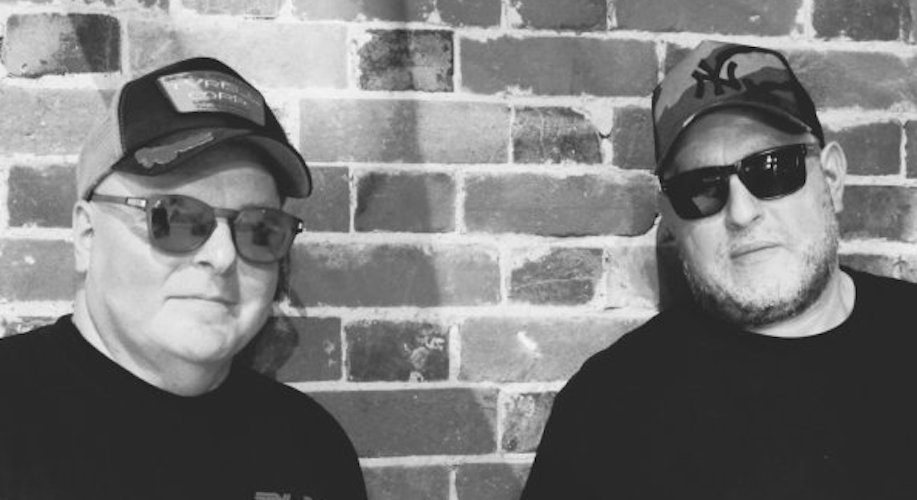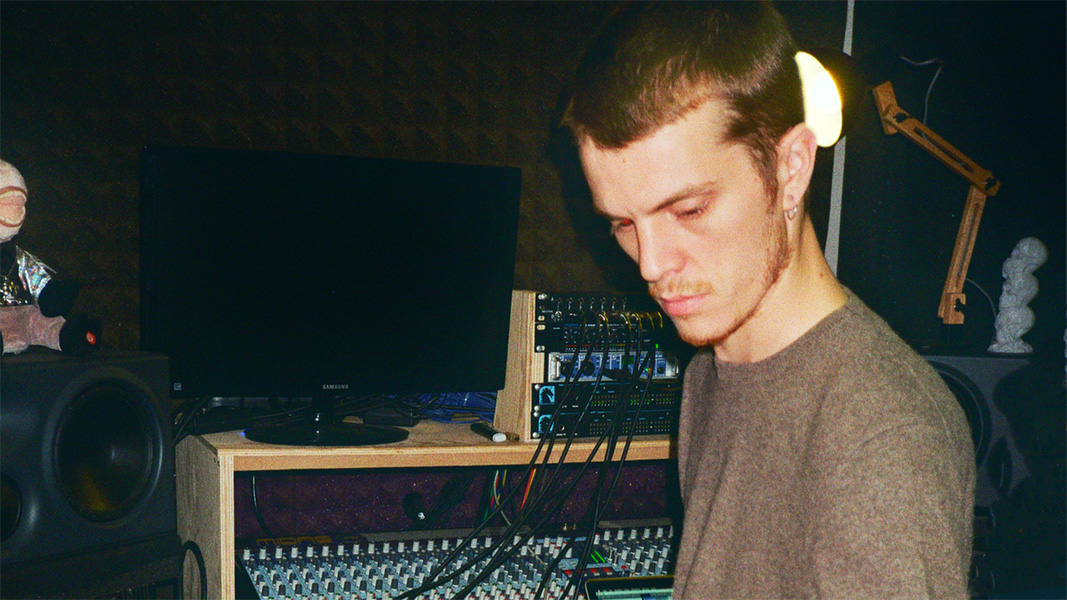DJ Psychiatre is the main alias of Sylvain Creton, who over the past few years, has curated a compelling audial universe that continues to grow organically and intuitively with each release. His take on House has won many admirers, with praise set aside for his dexterous approach and multi-faceted style. Whether it be acid tinged rollers through to softly spoken rhythmic atmospheres, via disco tinged numbers which never fail to get the party going, Creton has allowed DJ Psychiatre to be a truly expressive medium.
His latest release, ‘Moving Into Jazz,’ on Last Year at Marienbad (by Oathcreations) feels like a natural next destination for Psychiatre, who delivers a collection of tracks that once again show the hallmarks and motifs of his enriching sound. True to form, ‘Moving Into Jazz’ demonstrates a myriad of styles, shifting from the deeply hazy through the powerfully uptempo – all the while demonstrating a real sensibility for melodic range and texture.
We managed to grab the man himself for an in depth chat ahead of the new EP. Here’s how it went down…
WWD: DJ Psychiatre, great to meet you! What’s happening in your world at the minute?
Right now, I’m just taking a short break from work. The sun is shining brightly, and the weekend starts early this Wednesday evening, so everything’s going well so far.
WWD: Congratulations on releasing ‘ Moving Into Jazz’ on Last Year At Marienbad. Talk us through the release?
It’s been about a year since my last vinyl release on Pont Neuf Records, which was more club-oriented. The one before that, also on Pont Neuf, had a more organic, downtempo house vibe with a nice vintage sound. Since then, I’ve been working on new tracks, always letting the inspiration of the moment guide my production. I think this new release is the perfect blend of those two previous records. The A-side is a classic collection of vintage deep house, while the B-side leans more experimental, with club-oriented sounds.
I had a few more demos ready and sent them to Oath, knowing they’d be a better fit for their amazing sub-label, Last Year At Marienbad. ‘Moving Into Jazz’ was the track that caught their attention, and from there, we selected the rest of the tracks to match its mood. I see this track as the pinnacle of what I can create in terms of deep-deep house—the subgenre I’m most passionate about. I was really proud of this one, so I’m thrilled to see it getting a proper release.
Notably, this is also the first release where I sing. On ‘A Trance To Remember,’ I wrote the lyrics and recorded my own vocals. Even though my voice is almost unrecognizable in the final mix, it was a great experience—and definitely something I’d like to do again.
WWD: For those who are just discovering your music, what do you hope they feel or experience when they listen to your productions?
My favourite genre is definitely deep house—especially the old-school deep house from the 2000s, like the releases from Guidance Recordings or Forensic Records. I think it’s the warmth, the organic drum patterns, and the steady, hypnotic grooves that really draw me in. No matter my mood, I always try to weave those elements into my music in some way.
When I listen to those old labels, I feel a sense of coziness, nostalgia, and that delicate balance between euphoria and melancholy that some tracks manage to strike so well. That emotional tension is something I hope to capture in my own music—so that listeners might feel what I feel, or experience their own version of it.
WWD: Can you describe the connection between your music and your French roots, and how they continue to influence your music today?
France has an incredible pool of talent inherited from a rich and shared cultural heritage. From Laurent Garnier to Daft Punk and Jean-Michel Jarre, it’s undeniable that the French have left their mark on the history of electronic music.
I believe that many French producers were immersed in this influence from a very young age. It’s no surprise that there are still so many French artists who continue to be leading figures or key references in their fields. There’s no denying that listening to the French Touch wave while I was still in high school shaped my love for electronic music — I still regularly play tracks from that era in my DJ sets. However, when it comes to production, I’m more influenced by underground artists whose style is closer to mine, like Pepe Bradock, DJ Steaw, or Playin’ 4 The City.
I think it’s important, as a French artist, to highlight other French artists, especially since we often end up playing together or connecting on social media. So far, I’ve always come across really kind and talented people, and I never hesitate to buy their records and play them in my sets (Sweely, Tour-Maubourg, Armless Kid, KX9000).
WWD: How is the electronic music scene in your city right now?
I live in Rennes, in Brittany, in the west of France. It’s a reasonably sized city with a few hundred thousand inhabitants, but the population is quite young and dynamic, and the city actively supports cultural initiatives. The city’s flagship festival is Les Transmusicales, a major three-day event that has been running for over twenty years. It has always focused on showcasing emerging artists across all genres (electronic music, rock, rap, Latin music), many of whom have gone on to become international names. It’s a real privilege to have such a festival just minutes from home.
There are of course other festivals that highlight electronic music and are able to host international artists, whether they’re more accessible (like MADE Festival or Texture Festival) or more experimental (such as Maintenant Festival). Rennes also has a number of cultural venues that host regular events, and there’s a lot going on in terms of electronic music—especially at places like L’Antipode or L’Ubu.
Finally, the local scene is largely driven by a very active network of associations that organize parties and open-air events several times a week, almost year-round. These take place either in bars or more intimate, invite-only venues. It’s thanks to them (Texture, Percept, Volatil, Turtle, Ônd) that living in Rennes is such a pleasure.
WWD: What has been the highlight of your career so far? Can you talk about a specific moment or accomplishment that stands out as particularly meaningful to you?
I think the highlight of my career was the DJ set at Marvellous Island Festival with Tour-Maubourg in 2021. We played for two hours on the stage that’s literally set on the beach, just before sunset. It was an incredibly special moment, and the crowd was on fire.
If I had to mention two other moments that were especially meaningful to me, I’d start with the release of my first cassette on House Plants Records. It was the very first time I released music in a physical format under the alias DJ Psychiatre. It came out on a label I really loved—though sadly it no longer exists—with a cover designed by my best friend. Together, we also recorded a roughly 40-minute hardware live set for the B-side.
I also did three 24-hour vinyl mix live streams on Twitch, three years in a row, with a charitable goal: raising funds to support mental health organizations. I managed to raise around €2,000 in total. Beyond the “athletic” side of the performance, it gave me a way to connect my passion with my professional background, which adds deeper meaning to my alias.
WWD: Can you share some insight into your creative process when producing music? Do you have any particular rituals or methods that help you stay inspired?
I’m finding it increasingly difficult to compose because I’m quite slow and I need a lot of uninterrupted time before I can even start a session. Unfortunately, with work and life in general, it’s getting harder and harder to find 5–6 free hours in a row that I can fully dedicate to producing music. So I usually end up producing during holidays. I often stay home (I’m not really into traveling) and set up in the living room for hours, tinkering with Ableton until I come up with something I like.
Depending on my mood and what comes out, I can end up making very different kinds of tracks—Ambient, Downtempo, House, Breaks. I often struggle to feel fully satisfied with my work, which I guess is something most creatives go through. So I try to push myself to finish what I start, even if the final result only partially satisfies me. Out of everything I produce, there are always a few tracks that stand out, and those are the ones I send to labels.
Usually, the faster a track comes together, the more I like it—it means the process felt natural and inspiration kept flowing. That was the case with ‘Moving Into Jazz,’ which I probably made in a single session (as opposed to the usual three or four).
WWD: As someone deeply rooted in the electronic music scene, what state is it in right now? What notable artists are emerging?
There was a period over the past 3–4 years that was quite challenging, as the trend leaned heavily toward faster tempos and a harder sound in most tracks. The parties being organized were focused on hard techno or neo-trance, and even some DJs I liked began steering their productions and sets in that direction. House music was largely pushed to the background, which naturally made it harder to showcase my own work—whether in terms of production or DJing.
But like all trends, things change, and I feel there’s a shift back toward softer, more experimental music—and house is definitely making a strong comeback. There are so many artists I love that it’s hard to name just a few, but recently I’ve been buying records and tracks from Venetia, Jhobei, E-Unity, Ernesto, and Cimarrón, to name a few.
WWD: When you are not busy with music, what might we find you doing?
I’m a real homebody. Outside of music, I especially enjoy food, spending evenings with friends, video games, and animals. If I’m not DJing or out at a party, you’ll most likely find me at home playing with my cats.
WWD: Finally, What does the rest of 2025 hold for yourself?
In terms of gigs, I’m scheduled to play again at Marvellous Island Festival this June in Paris — a major electronic music festival.
I’ve composed an ambient album that I’d like to release on a cassette label, but I haven’t yet found one that would be willing to take it on. I’m also planning to release a vinyl featuring two of my older tracks (from my lo-fi house period, which people really liked), as a very limited white label pressing — only 30 copies.
WWD: Amazing ideas! Thanks for the chat 🙂
‘Moving Into Jazz’ is available here

